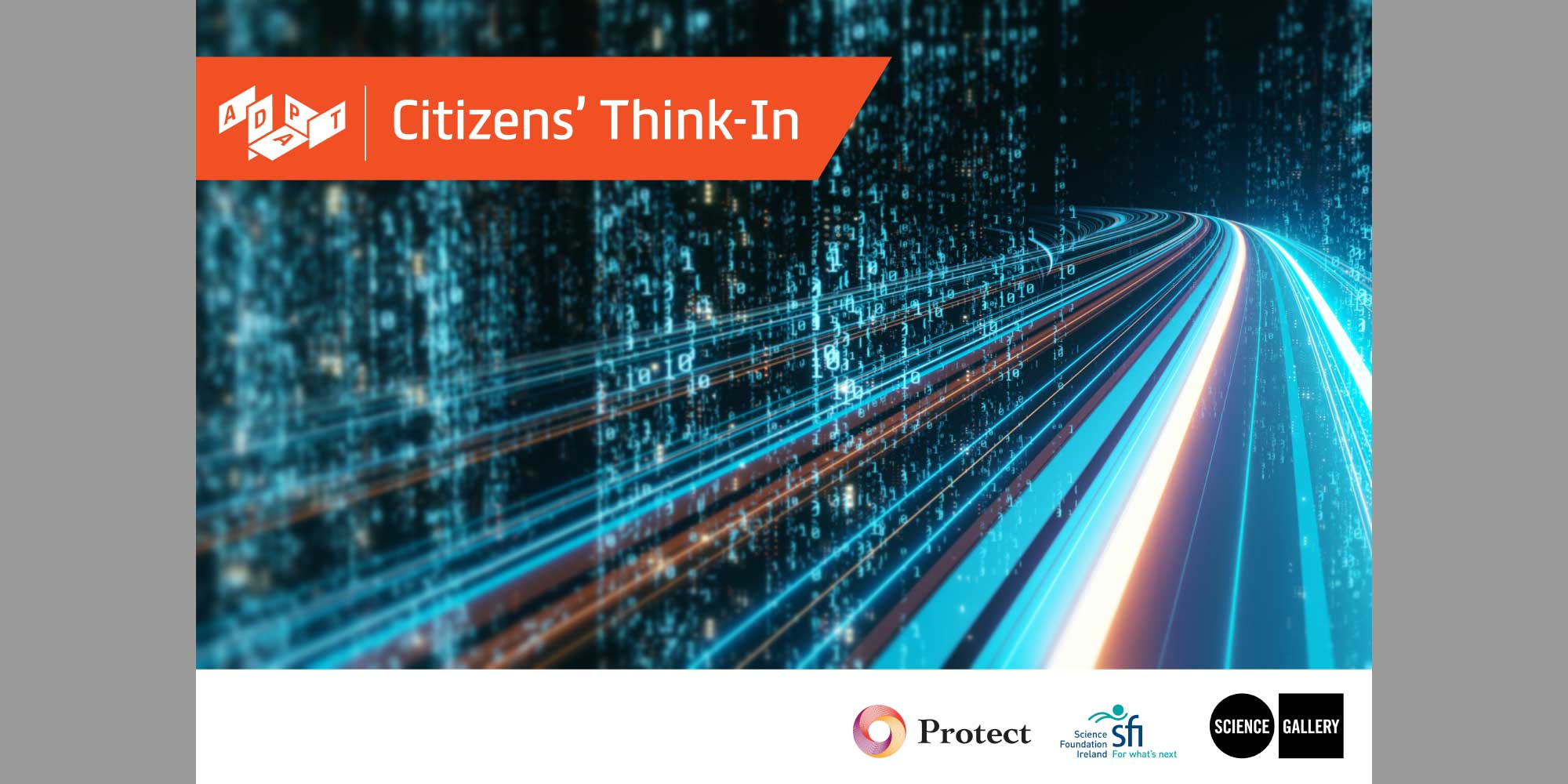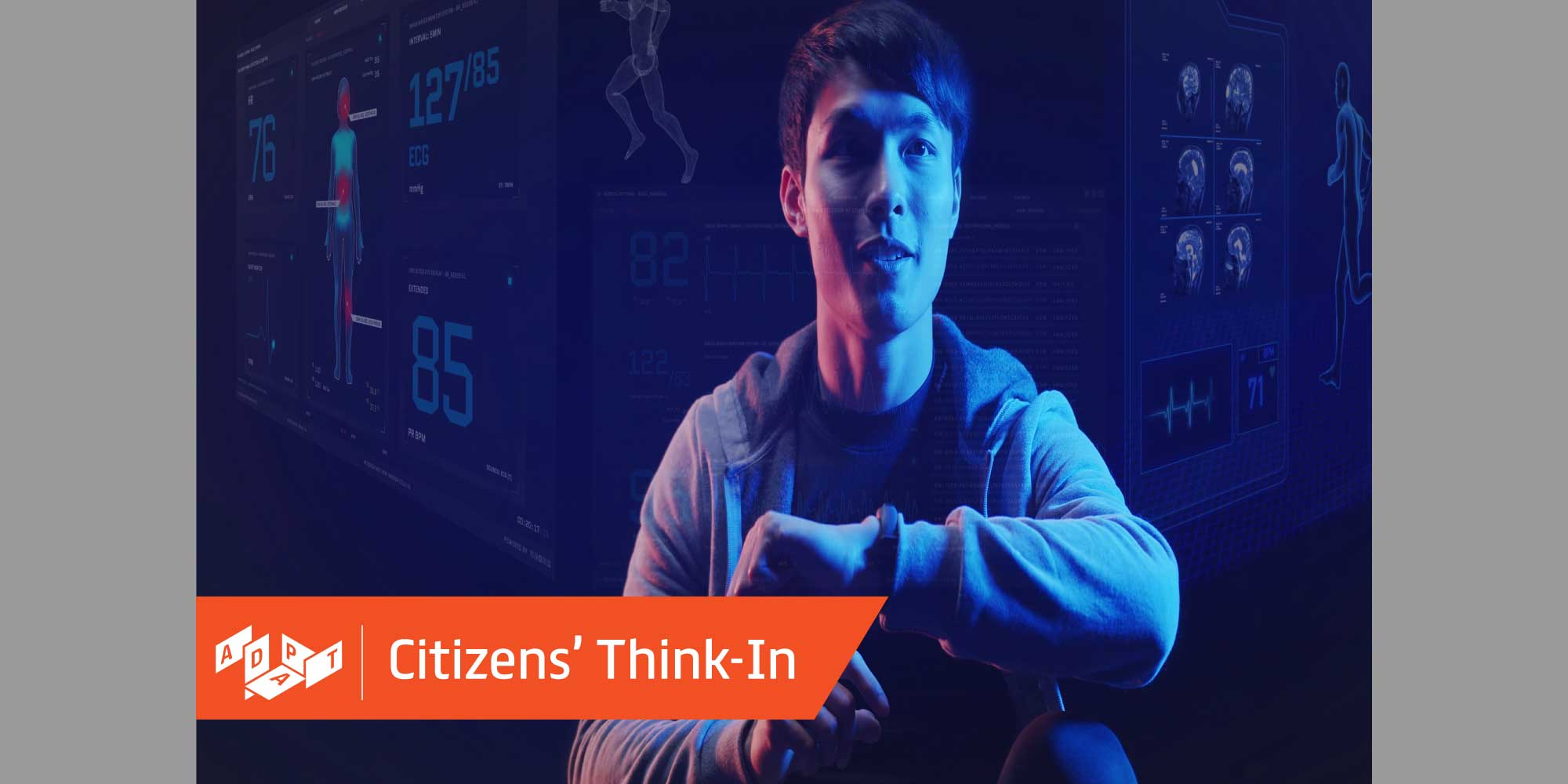Digital technology has rapidly changed how we access information, how we work and how we connect with each other. This has also given rise to a massive increase in the amount of personal data being gathered across the apps, websites and online services we use every day. But do we really understand where and how this data is shared? What is the level of trust between us and big tech organizations that control our data? Join our workshop to discuss” Who Should we Trust with our Data?” Science Gallery Dublin invites you to join ADAPT & PROTECT researchers in a Citizens’ Think-In on Thursday 9 Sept 202, 12-13:30 BST. We Want to Hear Your Opinion!
The notion of trust and data is complex and layered. There is a growing realization that the current dominance of a few big tech companies is not good for society. Our multi-disciplined researchers are exploring how we can give individuals more impetus and control when it comes to managing their own data online. Moving beyond agreeing to cookies to emerging solutions such as “Pods” (personal online data stores) which would enable individuals to retain control and ownership of their data.
Join ADAPT and PROTECT experts in questioning
- Who should we trust with our data?
- Do we fully understand the implications of terms, conditions and privacy notices we accept?
- Are there alternative data-sharing models which could give individuals control over their own personal data?
- How will the European Commission’s new legislative proposals help to protect individuals?
- How do we empower people, so they feel confident executing control over their data?
What is a Citizens’ Think-in? ADAPT’s Citizens’ Think-Ins are public forums that bring people together to discuss some of the ethical issues we face in the digital age. They give the public an opportunity to interact with and inform research at the cutting-edge of AI research and development. What do I need to do? To join in the Think-In, all we ask is that you are open to listening to ideas and sharing thoughts. Our researchers want insights from people to inform their work and this includes whether you agree or disagree with the research direction, are confused or empowered by the emerging insights and whether you think it is impactful or not. Your participation means that you will have the chance to steer research through these conversations. How does it work? No previous knowledge of the theme is necessary. We ensure the themes we use are relevant to everyday life. Real world scenarios will be provided so that people can imagine the potential outcomes despite their previous experiences. Participants will be given a full introduction to the topic at the event by our team. They will then be invited to share opinions in group discussions and no expertise in the area is required – all necessary details will be provided, and the organizers are interested in hearing opinions from everyone.
Haleh Asgarinia, University of Twente / Universiteit Twente, Netherlands: Haleh Asgarinia is a Marie Sklowdowska-Curie Fellow in the PROTECT research network. She is a PhD researcher at University of Twente (Netherlands) in the faculty of behavioral, management and social science, in the Department of Philosophy.
Andres Chomczyk, Vrije Universiteit Brussel, Belgium: Andrés is a Marie Sklowdowska-Curie Fellow in the PROTECT research network. He is a PhD researcher at the Vrije Universiteit Brussel in the Law, Science, Technology and Society research group.
Beatriz Esteves, Universidad Politécnica de Madrid, Spain: Beatriz Esteves is a Marie Sklowdowska-Curie Fellow in the PROTECT research network. She is a PhD researcher at the Universidad Politécnica de Madrid in the Ontology Engineering Group, working on the intersection of privacy, Semantic Web, GDPR and decentralized datastores.
Emma Clarke, ADAPT, Dublin City University: Dr Emma Clarke is the Education and Public Engagement Officer at the SFI ADAPT Research Centre. Emma coordinates ADAPT’s public engagement activities including the Technology in my Life: Citizens’ Think-In series of interactive two-way citizen-researcher dialogue events.
Anne Kearns, ADAPT, Dublin City University: Anne Kearns is a project manager in the Education and Public Events team in the SFI ADAPT Research Centre. Anne coordinates ADAPT’s SFI Discover activities including the AI in My Life, a Transition Year module that engages students in a dialogue around the societal implications of emerging AI and digital innovations including ethics and privacy.



